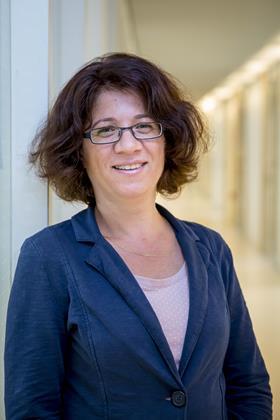How do we ensure that the level of education is the same in all European (applied) universities? What should lecturers do with technological developments that seem to be disrupting the education system? How can we prepare our students for the jobs of the future? These are some of the questions that the European Chemistry Thematic Network (ECTN) will try to answer at its annual meeting in April.
One of the main aims of the annual ECTN meeting is to raise awareness among researchers about the challenges in higher education. According to Stefania Grecea, associate professor at the University of Amsterdam, chair of the Quality Standards in Teaching ECTN standing committee and one of the organisers of the ECTN annual meeting, it’s a necessity to have meetings in which lecturers think about how to use technology of our current day and age in education. Another important aim is to create a network of lecturers who can help and inspire each other.’
‘We believe it would be beneficial for the interaction between other European universities to have a framework such as the Basic Qualification Teaching (Basiskwalificatie Onderwijs in Dutch) to create a common ground for the professional development of university chemistry lecturers’, Grecea says. She hopes that people will become more involved in communicating with their colleagues at lecturer level. ‘Because sometimes I miss disciplinary meetings where we discuss teaching methods specific to chemistry, like what chemistry lecturers need to do to keep up with technological developments, or how they should approach the digitalisation of the laboratory environment.’

Open to everyone
There are a lot of scientific meetings, but there are very few for education. Ideally, participants at the ECTN meeting would take the information back to their own institutions and share it with colleagues. For the first time, the ECTN meeting is open to everyone, not just members of the network. ‘For a number of years, we have noticed that more and more members who were heavily involved in the network have become professionally inactive’, says Grecea. ‘It turned out to be very difficult to replace these people, and as a result the group became smaller.’
Grecea believes that the time that the members have put in hasn’t been recognised by the universities in the way it would have been if it had been about research. ‘That’s why we’ve opened up this meeting and other activities to everyone, in the hope that people will see the added value of a chemistry lecturers’ network and join us. For me, the most important thing is to create awareness in chemistry education and to create a network of chemistry lecturers. We create networks for research and science, so why not for education?’

Digitalisation
One of the regular attendees is the Thomas More university of applied sciences. ‘Our main purpose at these meetings is to connect with other universities, looking for internship opportunities for our students’, says Steven Vreysen, program manager for the chemistry bachelor at Thomas More. ‘The ECTN annual meeting in particular is the most interesting since there’s both a lot of universities attending and the programme offers helpful talks about teaching and education.’
At the meeting, Vreysen hopes to see the results of a few teaching related projects too. ‘For example, the DISTINCT project, which supports the digitalisation of chemistry education in Europe, will develop a remote laboratory support toolkit. We often receive the question if we provide distance learning, and we usually have to answer in the negative since we’re doing a lot of practical lab work. We’d much rather say we do, so I’m curious if this remote toolkit could help us.’
Vreysen expects that the ECTN meeting will be a great place for finding partners for international projects, like Erasmus+. ‘We see that our Belgian students are working in a increasingly international context, and one of the ways to prepare them for this is letting them take part in international projects.’
The talks and workshops are also very much of interest to Vreysen and his colleagues. ‘Recently, we’ve been looking at virtual reality technology in education. We already have developed a safety training programme in a 3D environment, but we want to expand this, maybe with laboratory work. One of the workshops will be about Virtual Education Community & Online Teaching Materials, so my hope is that the use of VR will be discussed there too.’
The ECTN annual meeting takes place 13-15 April 2023 at the Science Park Amsterdam. More information: ectn2023.org












Nog geen opmerkingen